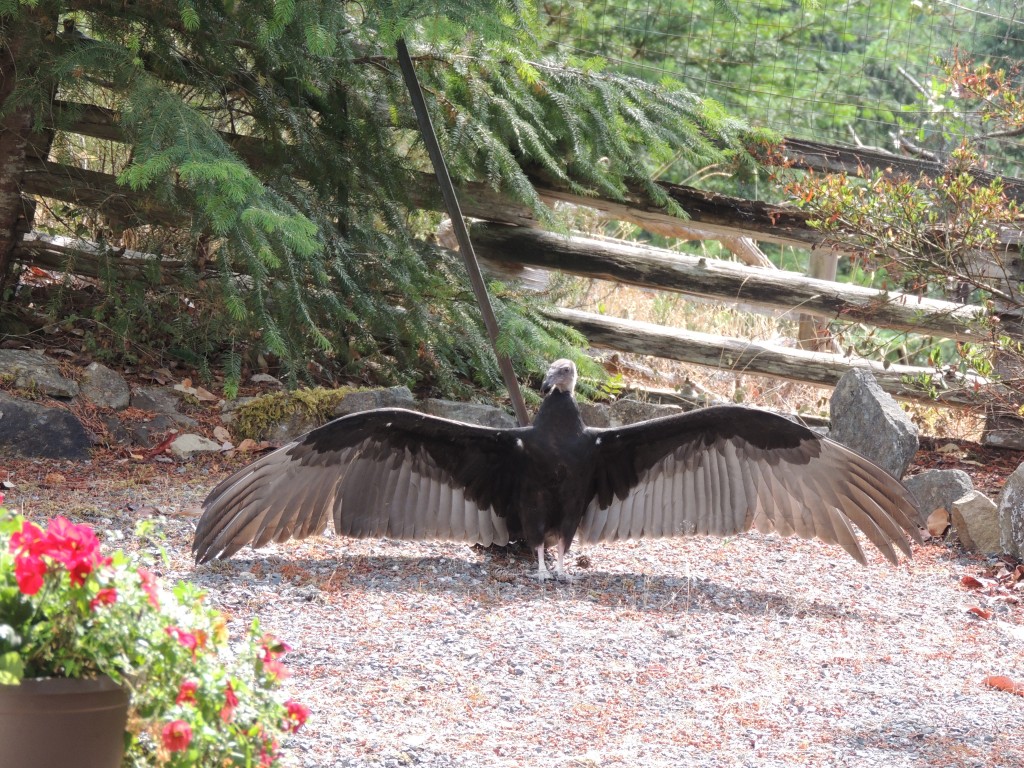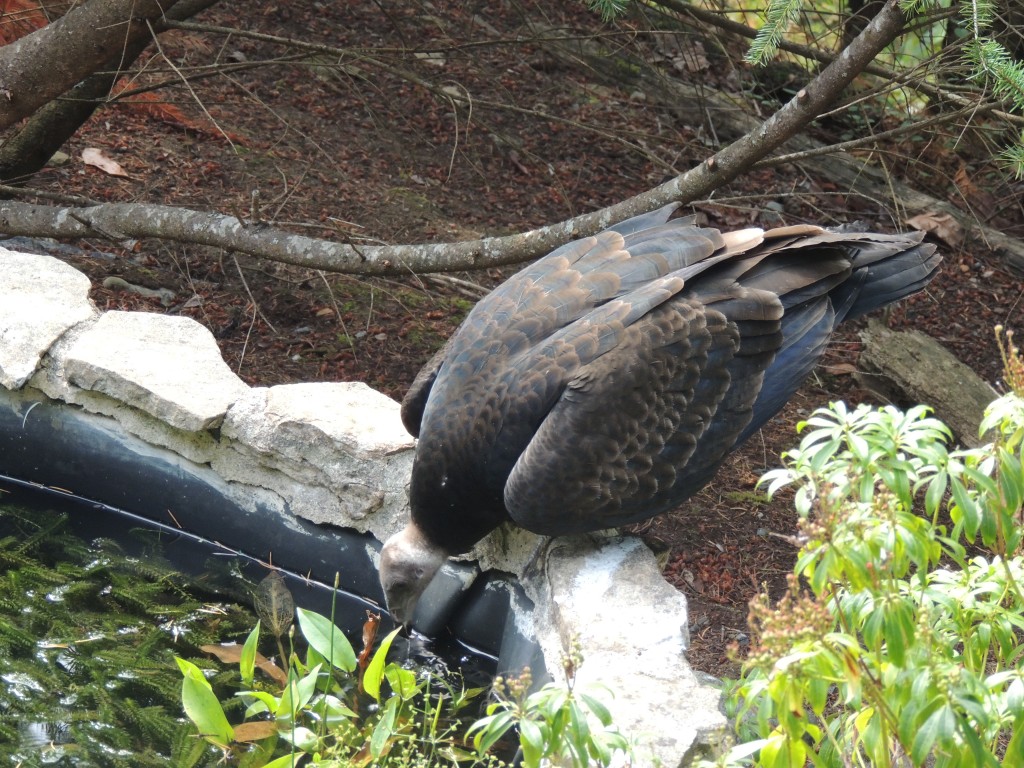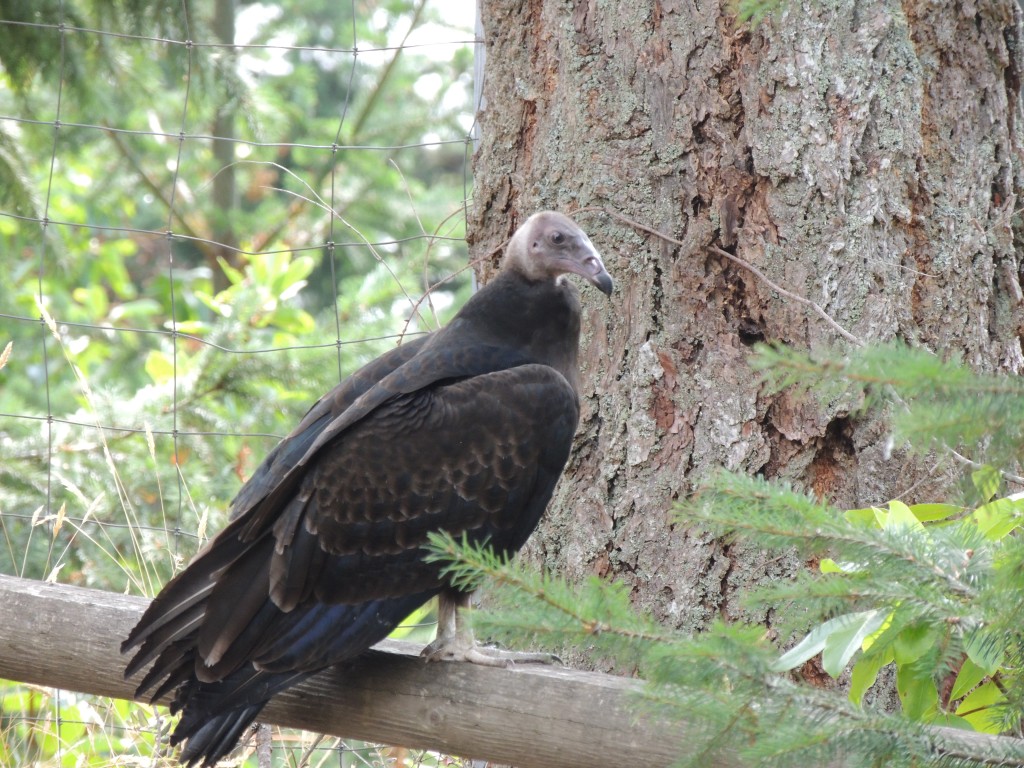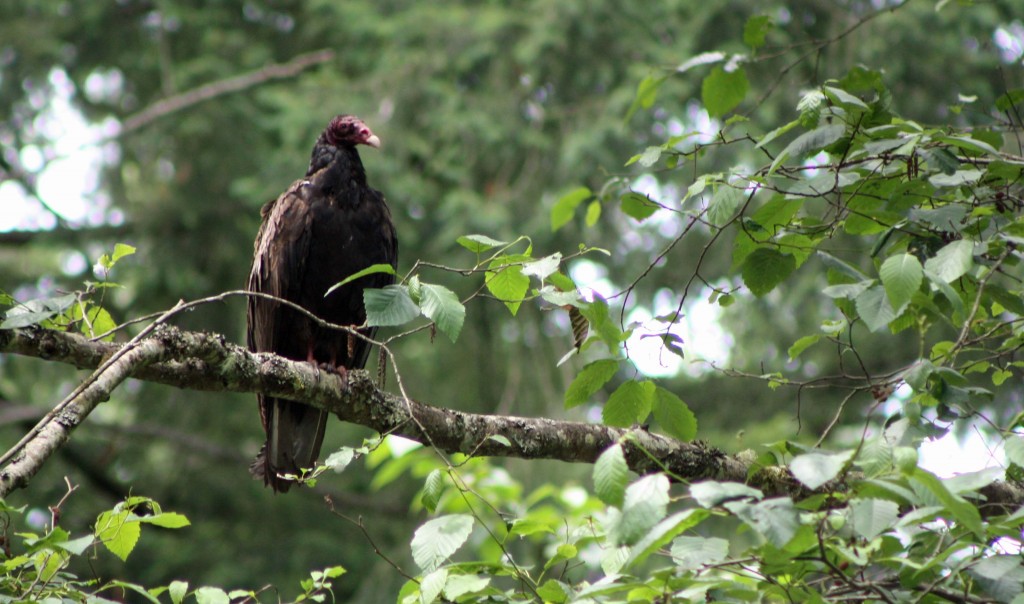Recently a young Turkey Vulture (cathartes aura) has become a frequent visitor in the yard of a Gabriola Island couple. Not knowing the sex, they call it Vic the Vulture – for either Victor or Victoria. Vic usually comes around every other day and spends up to an hour in the couple’s yard, drinking from their pond, sitting on a roof or railing, or enjoying the sun, like this:
Vic’s not-yet-red head and not-yet-fully-formed beak tell us he is a juvenile. In contrast, the Turkey Vulture (TV) below, spied sitting in a tree in the Gabriola Island “tunnel of trees” a few years ago, has the adult’s red head and sharp beak, perfect for tearing apart carcasses. Note also (if you can zoom in and enlarge the photo) the see-through nostrils! How cool is that?
Here on Gabriola we look forward to the arrival of the vultures, foolproof harbingers of spring. Though not the prettiest of birds (well, beauty is in the eye of the beholder), Turkey Vultures have important redeeming qualities including a highly-developed sense of smell that allows them to locate carcasses on the ground from high in the air. Garbage-eaters extraordinaire, with a natural immunity to the toxins of dead meat, they clean the forest floor of even the most putrid of meat without contracting botulism. It seems only fitting that the Latin species name for them, cathartes, means ‘purifier’.
Turkey Vultures have also played a valuable role in locating leaks in gas pipelines in the United States, at least in years gone by. Engineers added a small amount of a gas that smells like slightly-rotten meat to natural gas pipelines (pure natural gas in unscented) and then monitored the line for gatherings of vultures. Where there were TVs, there was a leak.
Yet these amazing birds do have some unseemly habits. After a meal, for example, Turkey Vultures defecate on their legs. Apparently this helps them cool off. It also protects their feet and legs from the bacteria of the prey they’ve just devoured: their droppings contain an antiseptic coating. Although they can’t protect their vulnerable heads with this maneuver (!) the sun takes care of any bacteria on their bald little heads. And if this isn’t uncouth enough, they’ll regurgitate and throw up their food for a variety of reasons, including to startle predators (that should do it!) and to lighten up.
Despite knowing these less-than-tantalizing things about Turkey Vultures, I love sitting on the back deck, feet up, watching them soar on the thermals, rarely flapping their long wings. Do you know how to recognize a TV (versus an eagle) in flight? It’s easy to tell them apart when you know what to look for. Here are the giveaways:
- TVs hold their wings tilted up just a little, forming a slight V-shape or dihedral angle
- TVs teeter slightly from side to side when flying at low altitudes
- TVs have light-coloured outer underwings that can look white, grey, or even silver in the sunlight
If you see a young TV riding the wind currents of Gabriola it just might be Vic. Be sure to wave and wish him/her well. And let’s hope that when autumn comes, Vic joins a flock and heads south for the winter!







Outstanding post! These birds do not get nearly the amount of respect they deserve. Questionable personal habits aside, they do a great job of keeping our landscapes clean. And what a fantastic yard bird!
Very cool and informative!